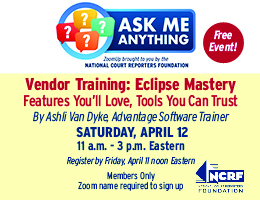Do any of these sound familiar?
Hello. This is a final reminder that your vehicle warranty is set to expire. Please call us back immediately to extend the warranty.
Congratulations. Your student loans are eligible for the new student loan forgiveness program, but only if you act within the next 24 hours.
This is the IRS. We are calling to inform you that we are filing a lawsuit against you for back taxes. To get more information, please return this call immediately.
This is just a sample of the types of phone, text, and email scams being reported by the Federal Trade Commission (FTC). Others relate to credit card debt, charity donations, natural disasters, cryptocurrency, COVID-19 testing and treatment, funeral expenses, Medicare and health insurance, tech support, and more.
Robocalling is as ubiquitous as smishing and phishing. A robocall is a prerecorded message sent from an automated system. Like spam texts and emails, robocalls are not just annoying; they can be dangerous. Robocalls can trick you into giving away personally identifiable information (PII) such as banking information or your social security number. They can also record your voice and use a “yes” to verify an unwanted purchase.
If it seems like throwing away your smartphone is the only solution, here are some Do’s and Don’ts that will give you some other options to navigate the scourge of robocalls.
DO’S
- Be wary of caller ID. Criminals can mask an unknown number as a local number or even one of your known contacts in a practice called “spoofing.”
- If you get a call, message, or offer and are unsure if it is legitimate, do not respond before doing your own research.
- Be suspicious of winning prizes or vacations in contests that you did not enter.
- If you do answer a robocall, hang up if you suspect that you are being scammed.
DON’TS
- Don’t follow prerecorded prompts that ask you to press numbers or say “Yes.” These can generate more robocalls or be used against you. Scammers can record your voice and use it to make purchases in your name.
- Don’t give out any personal or financial information, even if you are just being asked to “confirm” it.
- Don’t fall for “free” giveaways or pay shipping charges for items you did not order.
- Don’t fall prey to pressure tactics to “act quickly” or “take immediate action.”
- When in doubt, don’t answer phone calls from unknown numbers.
How to stop unwanted calls
- Place your phone number on the FTC’s National Do Not Call Registry. Spam calls may still be able to get through, but legitimate telemarketers will be prevented from calling.
- Check the settings on your phone for blocking features or ask your phone service provider if any are available.
- View this guide from the Federal Communications Commission (FCC) about how to stop unwanted robocalls and texts.
How to file a complaint
- If you feel that you have been the victim of a phone scam, you can file a complaint with the FTC online or by calling 877-382-4357. You can also contact your state consumer protection office.
- File a complaint with the FCC’s Consumer Complaint Center.












